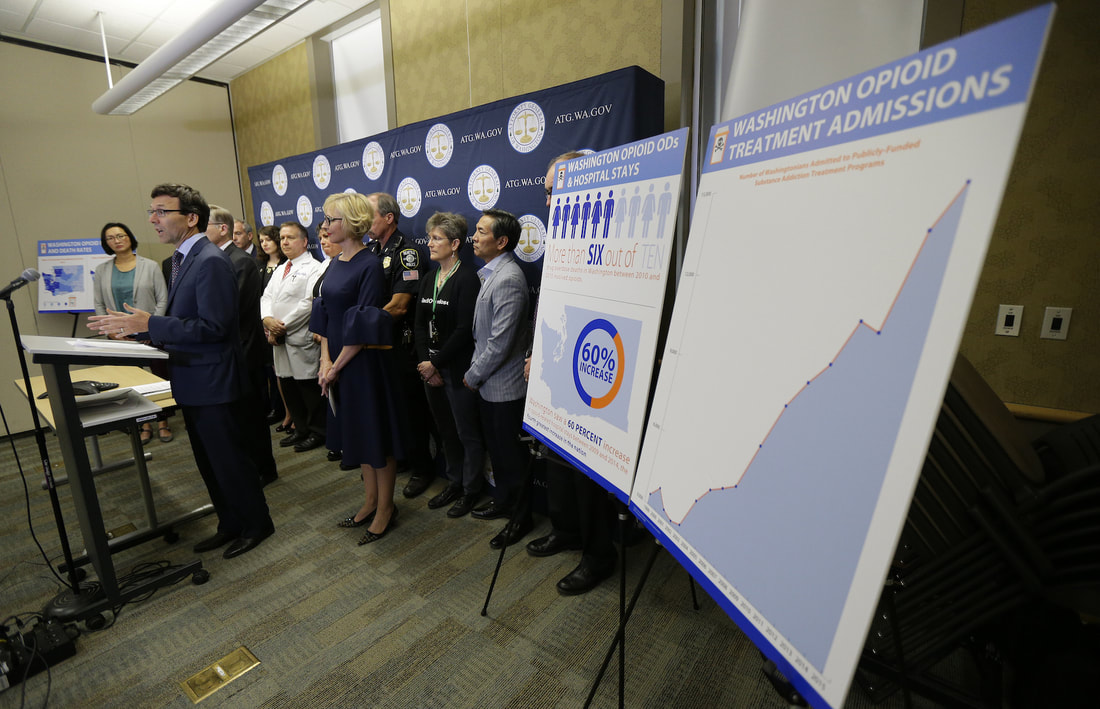|
The coverage we analyzed on Tom Marino’s nomination conveys three points: One, opioid abuse is a problem in the U.S. that needs to be addressed (read more here). Two, last year’s legislation, the Ensuring Patient Access and Effective Drug Enforcement Act, limits the DEA’s ability to stop opioids from entering the black market. And three, Tom Marino, who sponsored the bill in the House, is to blame and he should be barred from any position that would enable him to further contribute to the problem. That last impression encompasses the bias in these articles, and if you buy it, you might miss the elephant in the room. How did the outlets create it? By emphasizing Marino’s role compared to everyone else who made it possible to enact the legislation. Here’s the BBC’s lead sentence, for example. US President Donald Trump’s nominee for drug czar is accused of helping relax enforcement on pharmaceutical firms blamed for fuelling the opioid crisis. This singles out the lawmaker, directing our attention to him and away from other parties. The four outlets do mention Marsha Blackburn, who co-sponsored the bill, but most of the coverage focuses on Marino and his nomination for the Office of National Drug Control Policy. By keeping the focus on Marino and the fate of his nomination, it’s easy to overlook the bigger issue: if this legislation effectively did a disservice to the American public, how did it happen? The articles mention a number of individuals and groups who signed off on the bill, including the House, the Senate, congressional aides who are responsible for tracking drug policy, the DEA, the Justice Department and former President Obama. The Washington Post adds: Besides the sponsors and co-sponsors of the bill, few lawmakers knew the true impact the law would have. The White House was equally unaware of the bill’s import when President Barack Obama signed it into law, according to interviews with former senior administration officials. Marino did have responsibility by leading the bill through the House, and directing our attention to the processes that authorized the bill and the apparent lack of awareness in them doesn’t lessen his role. On the contrary, the shift in focus can set us in a direction to better understand what happened, hold all lawmakers responsible, and figure out how situations like these might be prevented in the future. Exposing the bias also allows us to consider the problem differently and the role government restrictions should play in its resolution. The law in question may have contributed to adverse effects during the last months, but it’s a leap to assume the current situation would be considerably better if it hadn’t been enacted. Drug abuse is a complex societal problem, in which the individual is ultimately responsible for the use or abuse of any substance or tool. What should be the reach of government on issues such as drug abuse? Would higher levels of regulation ultimately solve the problem? Might there be other, more efficient measures outside of government and law enforcement that could help society address this and other addictive behaviors? Comments are closed.
|
Jens Erik GouldJens is a political, business and entertainment writer and editor who has reported from a dozen countries for media outlets including The New York Times, National Public Radio and Bloomberg News Archives
February 2018
Categories
All
|

 RSS Feed
RSS Feed